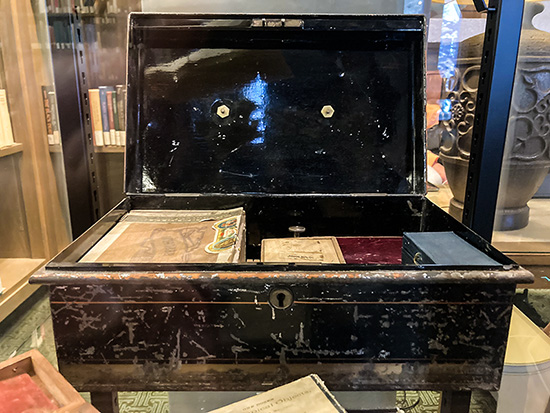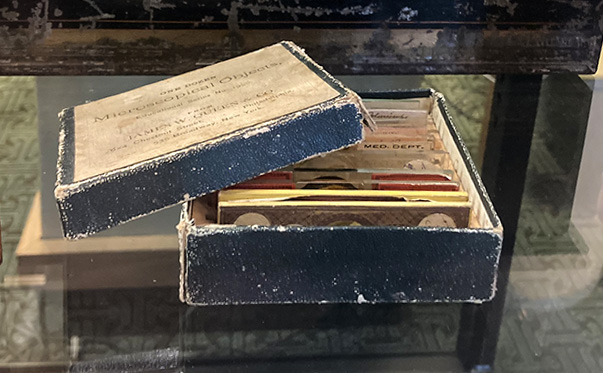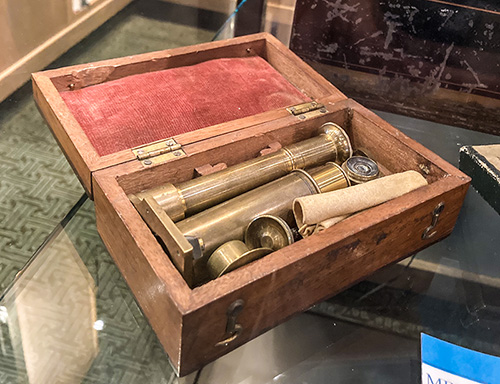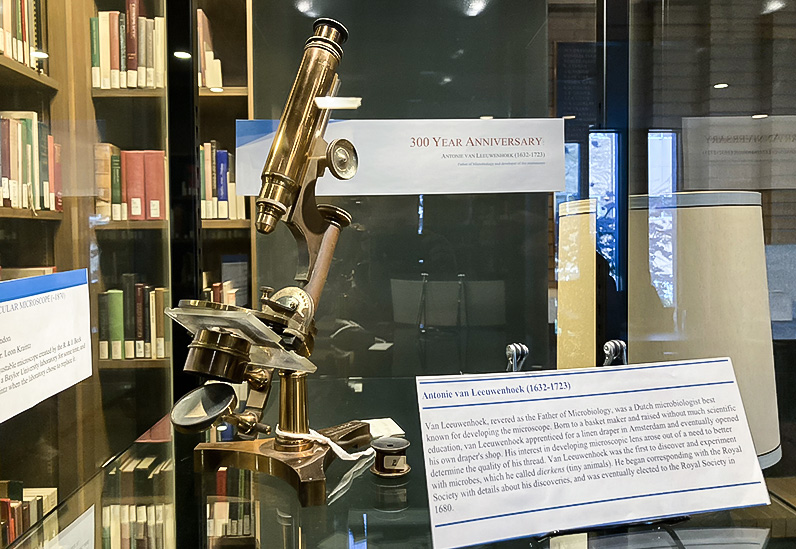
Antonie van Leeuwenhoek (1632-1723)
Antonie van Leeuwenhoek (1632-1723)
Van Leeuwenhoek, revered as the Father of Microbiology, was a Dutch microbiologist best known for developing the microscope. Born to a basket maker and raised without much scientific education, van Leeuwenhoek apprenticed for a linen draper in Amsterdam and eventually opened his own draper’s shop.
His interest in developing microscopic lens arose out of a need to better determine the quality of his thread. Van Leeuwenhoek was the first to discover and experiment with microbes, which he called dierkens (tiny animals). He began corresponding with the Royal Society with details about his discoveries, and was eventually elected to the Royal Society in 1680.
Exhibit curated by Eileen Chen, MLIS

Compound Monocular Microscope (~1870)
Material: brass
Origin: R. &. J. Beck, London
Provenance: gift from Dr. Leon Kraintz
An early adjustable microscope created by the R. & J. Beck Company. It belonged to Baylor University laboratory for some time and was acquired by Dr. Kraintz when the laboratory chose to replace it.
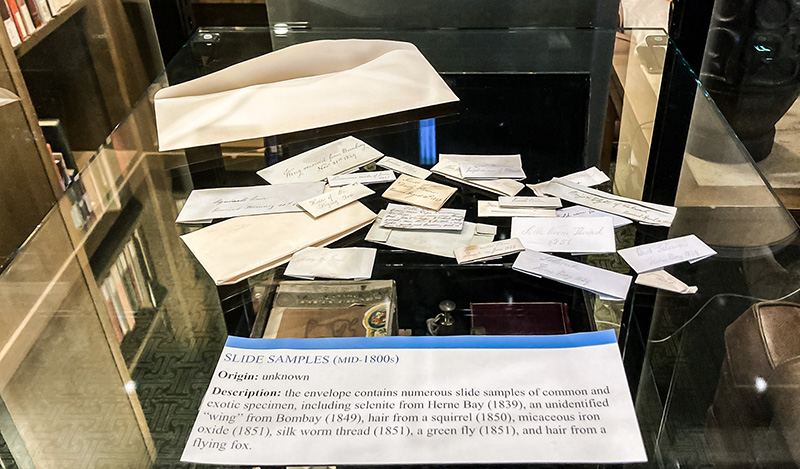
Slide Samples (mid 1800s)
Origin: unknown
The envelope contains numberous slide samples of common and exotic specimen, including selenite from Herne Bay (1839), an unidentified “wing” from Bombay (1849), hair from a squirrel (1850), micaceous iron oxide (1851), silk worm thread (1851), a green fly (1851), and a hair from a flying fox.
